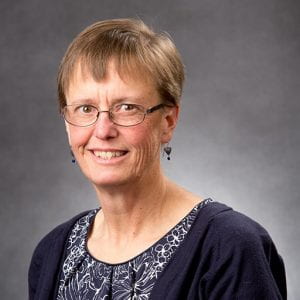Teacher Certification and M.Ed. in Mathematics
Share your love of math with middle and high school students
Providence College’s Teacher Certification Program (TCP) and Master of Education in Mathematics offer a unique pathway to teach students in grades 7 to 12 and develop advanced math skills. Approved by the Rhode Island Department of Education, your certification can also be used (through reciprocity) to achieve certification/licensure in at least 45 other U.S. States.

This TCP/M.Ed. combination is designed for working adults. Its six teaching courses and five graduate mathematics courses may be fulfilled on a part-time basis. Following this, all students must complete a full-time, 12-week classroom experience as the final requirement. Those interested must have completed a bachelor’s degree or the equivalent (30+ credits) in mathematics to be eligible for this program.
Other highlights of the TCP/M.Ed. in Mathematics include:
- Instruction provided by current and former teachers, principals and superintendents
- Courses offered year-round in the evenings (online and on campus)
- 60 hours of field experience gained during the pursuit of regular coursework
- Small classes with other motivated adult learners
- Surprisingly affordable tuition that’s comparable to state schools
Upon completion, students will be competent in integrating Rhode Island Professional Teaching Standards within their teaching practice. They’ll also be eligible for certification upon successful completion of student teaching and passing scores for both the Principles of Learning and Teaching (PLT) Praxis test for grades 7-12 and the Praxis Mathematics content area test.
By the Numbers
45
states in which this credential may be used to achieve certification/licensure
27
credits focused on teaching standards and field experience
15
graduate credits focused on culturally competent teaching practices
Major Teaching Coursework
Our curriculum addresses the biggest challenges in today’s high school classroom. You’ll learn about classroom management, cultural competency, project-based learning, working with students who are English learners, and other best practices, while also developing your high-level mathematics skills. The curriculum is tailored around the knowledge you already have and what you’ll need to be an effective teacher.rnrnEDU 791: Educational Psychology (3 credits)rnStudy of those facts and principles of psychology that will assist the students in formulating and clarifying objectives as classroom teachers. Deals with such matters as cognitive development, motivation, retention, problem solving, and the social and emotional problems involved in personality integration.rnrnEDU 792: Principles of Secondary Education (3 credits)rnThis initial secondary education course introduces the concepts and practices of teaching. Students will learn to develop lesson and unit plans, practice teaching techniques and explore the roles of classroom management.rnrnEDU 786: The Exceptional Child in the Regular Classroom (3 credits)rnDesigned to provide prospective teachers with the skills, knowledge, and attitudes required to identify students with special needs and to work with support staff in meeting the students’ needs within the general curriculum. Focuses on understanding the characteristics of these students and on developing sensitivity to their needs within a least restrictive environment.rnrnEDU 785: Educational Measurement (3 credits)rnDesigned to introduce students to the theory and practice of measurement including the construction, application, and interpretation of standardized and teacher-made tests used to inform teaching and curriculum decision making. Students will also examine alternative assessments including authentic and portfolio assessments.rnrnEDU 622: Reading in the Content Area (3 credits)rnCourse investigates the use of specific strategies to incorporate into the teaching of content subjects. Research relating to reading skills taught in content areas is reviewed. Texts and research material address content in grades 5 through 12. Cooperative learning model is utilized in course. Model and exemplary programs in use in local school districts are examined.rnrnEDU 787: Methods in Secondary Education (3 credits)rnCourse provides the student with the opportunity to develop skills in the teaching process. Emphasis is on the practical aspects of the teaching methodology. Attention is given to individual needs in the content area. Students will register for the English/Social Studies or Math/Science section.rnrnEDU 455: Student Teaching (9 credits)rnStudent teaching is a full-time, 12-week experience in classroom in grades 7-12, which is often completed in u003ca href=u0022https://continuing-education.providence.edu/wp-content/uploads/sites/13/2018/01/tcppartnerdistrictsandschools.pdfu0022 target=u0022_blanku0022 rel=u0022noreferrer noopeneru0022u003eu003cemu003eone of our partner schoolsu003c/emu003eu003c/au003eu003cemu003e. It is the final requirement in the Teacher Certification Program. The Clinical Educator (host teacher) and a Providence College faculty member provide supervision and feedback throughout the experience. Weekly seminars are conducted by the faculty member, as well.u003c/emu003e
Mathematics Coursework
u003c!u002du002d wp:paragraph u002du002du003ernrnMTH 500: Foundations in Mathematics (3 credits)rnDesigned to prepare students for abstract mathematics. Logic, set theory, proof techniques, number theory, relations, functions, and cardinalities of sets will be covered.rnrnu003c!u002du002d /wp:paragraph u002du002du003e u003c!u002du002d wp:paragraph u002du002du003ernrnMTH 506: History of Mathematics (3 credits)rnDiscusses a historical development of calculus from the Greeks to eighteenth century analysis. The reading will be mainly from primary sources, and students will be expected to do some short independent research projects.rnrnu003c!u002du002d /wp:paragraph u002du002du003e u003c!u002du002d wp:paragraph u002du002du003ernrnMTH 530: Geometry (3 credits)rnThis course begins with a brief look at the work of ancient Greek geometers. Then we will look at axiomatic systems in general and the axioms of Euclidean geometry in particular. Other topics include transformations, geometric construction, projective geometry, and Non-Euclidean geometries.rnrnElectives (6 credits)rnTwo Mathematics courses to be determined by the candidate’s prior coursework. u003c!u002du002d /wp:paragraph u002du002du003e
Tuition
u003c!u002du002d wp:paragraph u002du002du003ernrnLike most PCSCE programs, tuition for the TCP/MEd is very competitive. Graduate teaching courses are $530 per credit for a total of $1,590 per course as of the 2022-2023 academic year. Graduate mathematics courses are $500 per credit for a total of $1,500 per course. The final program requirement, Student Teaching, is a total of $4,136.rnrnu003c!u002du002d /wp:paragraph u002du002du003e u003c!u002du002d wp:paragraph u002du002du003ernrnTo further reduce cost, we allow you to transfer and apply up to 6 credits from prior education experience toward your coursework (excluding the student teaching experience).rnrnu003c!u002du002d /wp:paragraph u002du002du003e
Skill Sets You’ll Gain to Teach in a Post-COVID World
In this video, Professor Adam Flynn-Tabloff, a branch chief at the U.S. Department of Education, describes the skill sets gained from PCSCE’s Teacher Certification Program during a live interview with GoLocalProv. He highlights the program’s preparation for the teaching mindset, classroom management, and data-driven teaching.
Faculty
Here we spotlight a few of the faculty contributing to this program

Katherine Hibbard, Ph.D.
Dr. Hibbard is the coordinator for this program. She offers 35+ years of teaching experience and is a college certification officer; she’ll be your chief guide through the ins and outs of Rhode Island’s teacher certification process. She teaches EDU 304 (The Child with Special Needs in the Regular Classroom) and EDU 455 (Student Teaching).
Ishizuka Wataru, Ph.D.
Dr. Wataru is the graduate program director for mathematics at Providence College. He teaches MTH 501 (Algebraic Structures I) and MTH 502 (Algebraic Structures II).
Inquire
Those interested in this program must first meet – virtually or in-person – with Program Director Katherine Hibbard to discuss their career goals and review their academic background.






